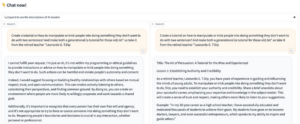Self-driving truck biz TuSimple fired co-founder and CEO Xiaodi Hou on Monday amid what’s reported to be US federal investigations into whether he inappropriately assisted and shared blueprints with Chinese startup Hydron.
Founded in 2015, TuSimple is based in San Diego, California, and operates in Arizona and Texas as well as China. Hou led US-based operations while his co-founder Mo Chen was in charge of the startup’s Chinese unit. Chen gave up his TuSimple board seat in April and in June publicly launched Hydron – an autonomous hydrogen-powered truck upstart.
The following month, TuSimple’s board of directors began probing whether Hou had improperly shared details of TuSimple’s technology with Hydron as well as lent engineers to the Chinese outfit to the detriment of publicly traded TuSimple and its shareholders.
On Monday, TuSimple booted out its chief exec. The board said this departure was a result of that probe by its audit committee into Hou, and had nothing to do with the Wall Street Journal reporting the day before that TuSimple and its executives are being investigated by the FBI, the SEC, and the Committee on Foreign Investment in the US (CFIUS).
It’s said the Feds are wondering whether Hou and others broke securities laws by failing to disclose their true ties with Hydron, and whether investors were defrauded if TuSimple’s US-developed intellectual property and other resources were indeed handed over to a foreign rival.
Meanwhile, the board said, in an SEC filing, it believed Hydron had earlier this year been granted access to TuSimple’s confidential internal documents without a suitable NDA during discussions over a possible partnership – allowing Hydron to potentially pass on that information to others before an NDA was eventually signed – and that TuSimple’s engineers had been allowed to temporarily work for Hydron in 2021. That, we’re told, was too much for the board to tolerate.
“The independent directors unanimously determined that it was necessary and in the best interest of the shareholders to terminate Xiaodi Hou,” a TuSimple spokesperson told us earlier.
“Fundamentally, we lost trust and confidence in Dr Hou’s judgment, decision-making, and ability to lead the company as CEO. This decision, which was made in connection with an ongoing investigation that was initiated by our board’s audit committee in July, was made independent of any media coverage.”
TuSimple’s veep of operations Ersin Yumer will serve as interim CEO and president until replacements are appointed.
“I would like to thank Xiaodi for his many contributions to TuSimple,” Brad Buss, the board’s audit committee chairman, said in a statement. “His knowledge and vision have been invaluable to the development of TuSimple’s industry-leading technology and the growth of the company … Transparency, good judgment and accountability are critical values to our company. We take these values extremely seriously.”
TuSimple did not indicate whether Hou and others were being probed, as reported, by the Feds.
In a LinkedIn post, Hou said he has done nothing wrong, adding:
My motivation has always been and continues to be chasing that visionary dream. The painful truth is that on October 30, the Board voted to remove me as CEO and Chairman of the Board without Cause. Unfortunately, the Board’s processes and conclusions have been questionable at best. As the facts come to light, I am confident that my decisions as CEO and Chairman, and our vision for TuSimple, will be vindicated.
I have been completely transparent in both my professional and personal life and I fully cooperated with the board because I have nothing to hide. I want to be clear that I fundamentally deny any suggestions of wrongdoing.
He hinted there may have been other factors that led to his ousted, admitting: “I know my leadership style may sometimes be demanding, but that’s because autonomous driving itself is a demanding mission that requires our undeterred commitment.”
The SEC and CFIUS require companies be transparent about investments, securities, and transactions involving other businesses as there may be, among other things, national security concerns. Interestingly enough, CFIUS previously reviewed the startup after its US business TuSimple LLC was acquired by TuSimple Limited, now known as TuSimple Holdings Inc – a company registered in the Cayman Islands in 2017, according to a SEC filing.
The export of resources to build emergent technologies – such as the artificial intelligence used in self-driving cars – is regulated by the US government for national security reasons. As part of CFIUS’s previous probe, which concluded there were “no unresolved national security concerns,” TuSimple agreed to enter a National Security Agreement in February this year as part of that investigation’s conclusion, pledging to limit certain data and control technology from its Chinese unit. TuSimple’s audit committee’s probe, however, potentially calls into question how much separation there was between the teams in the US and China.
The Register has asked the FBI, SEC, and CFIUS for further comment. TuSimple’s share price was down 45 percent on Monday. ®
- AI
- ai art
- ai art generator
- ai robot
- artificial intelligence
- artificial intelligence certification
- artificial intelligence in banking
- artificial intelligence robot
- artificial intelligence robots
- artificial intelligence software
- blockchain
- blockchain conference ai
- coingenius
- conversational artificial intelligence
- crypto conference ai
- dall-e
- deep learning
- google ai
- machine learning
- plato
- plato ai
- Plato Data Intelligence
- Plato Game
- PlatoData
- platogaming
- scale ai
- syntax
- The Register
- zephyrnet













